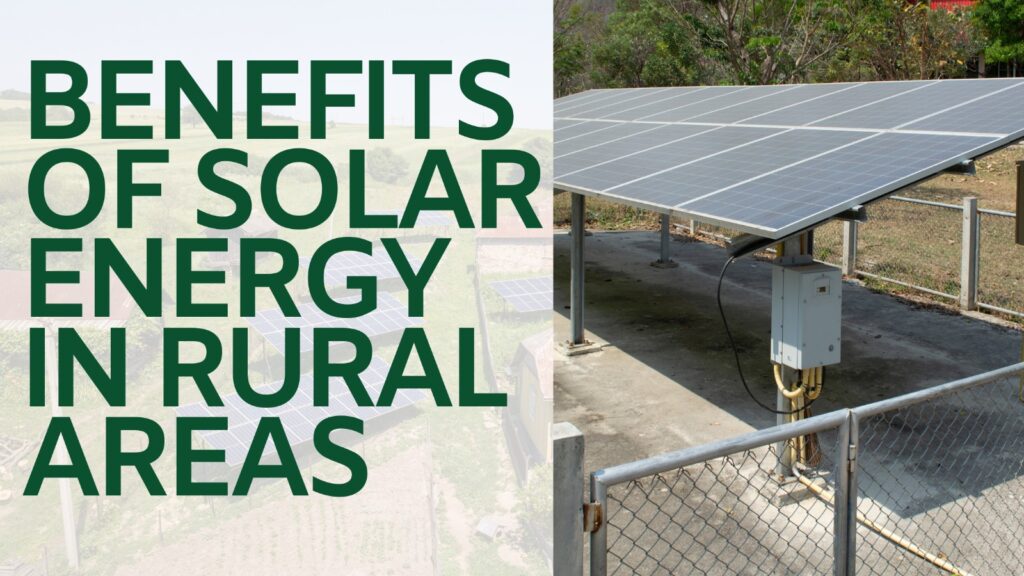
Get your free
consultation
book now!
Benefits of Solar Energy in Rural Areas
Solar energy has become a powerful tool in transforming rural areas, providing reliable and affordable electricity. For many remote locations where traditional energy sources are hard to access, solar power offers a sustainable solution. In this blog, we’ll explore how solar energy benefits rural communities and why it’s a game-changer for villages across the country.
Reliable Electricity Supply
One of the major challenges in rural areas is the lack of consistent electricity. With solar power, villages can access a reliable energy source that doesn’t rely on the grid. Even in places where infrastructure is weak or non-existent, solar panels can generate enough electricity to power homes, schools, and small businesses.
Cost-Effective Energy Solution
Unlike conventional power sources that require significant infrastructure, solar energy is a cost-effective solution. The installation of solar panels involves an initial investment, but the long-term savings are huge. Once installed, solar systems have minimal maintenance costs, allowing rural households to save on energy expenses for years to come.
Environmentally Friendly
Solar energy is a clean and renewable source of power. In rural areas where reliance on fossil fuels like kerosene or diesel is common, switching to solar energy reduces harmful emissions. By adopting solar, villages not only contribute to environmental conservation but also improve air quality, which is critical for the health of the community.
Energy Independence
One of the biggest benefits of solar energy in rural areas is that it promotes energy independence. Instead of depending on external energy suppliers or the unpredictable national grid, villages can generate their own electricity. This self-sufficiency leads to better control over energy consumption and costs.
Boost to Local Economy
By providing a reliable power source, solar energy can stimulate local businesses and support economic growth. With consistent electricity, small industries, agricultural processing units, and other businesses can operate efficiently, leading to job creation and better livelihoods for rural residents.
Improved Access to Education and Healthcare
Solar power plays a vital role in improving access to education and healthcare in rural areas. Schools with solar energy can extend study hours and power devices like computers, making education more effective. Similarly, health centers can keep essential equipment running, providing better medical care to villagers.
Easy Installation and Low Maintenance
Another advantage of solar power is its easy installation and low maintenance requirements. Solar panels can be installed in almost any location that receives sunlight, and with minimal upkeep, they can function efficiently for decades. This makes it an ideal solution for rural areas where access to maintenance services might be limited.
Conclusion: A Bright Future for Rural Areas
In conclusion, the benefits of solar energy in rural areas are numerous, from providing reliable electricity to fostering economic growth and improving quality of life. As solar technology becomes more affordable, it’s clear that rural communities can harness this renewable energy to build a sustainable and prosperous future.

